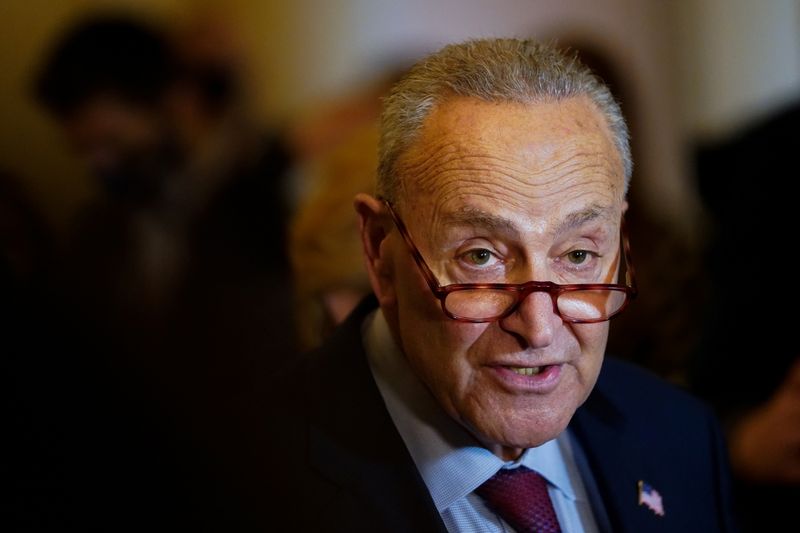WASHINGTON (Reuters) -U.S. President Joe Biden and congressional Democrats reached an agreement on a plan to lower prescription drug prices on Tuesday, the White House and Senate Democratic leader Chuck Schumer said.
The deal, which is much less ambitious than Biden and many Democrats had hoped for, will allow Medicare, the government's health insurance program for the elderly, to negotiate some prescription drug prices.
The agreement will be included in the Biden administration's "Build Back Better" legislation, Schumer told reporters.
"Fixing prescription drug pricing has consistently been a top issue for Americans year after year, including the vast majority of both Democrats and Republicans who want to see a change because they simply cannot afford their medications," Schumer said.
The deal also includes a $2,000 annual cap on out-of-pocket costs for people aged 65 and older, a tax penalty for companies that hike drug prices faster than inflation, and a $35 monthly cap on insulin prices, the White House said in a statement.
It leaves out some of the main provisions Democrats promised voters, such as extending government-negotiated prices to those covered by private insurance, not just Medicare.
The office of Senator Kyrsten Sinema, a Democrat whose support is needed for passage of any bill, said in a statement she supported the agreement following a discussion with Representative Nancy Pelosi, speaker of the House of Representatives and that chamber's top Democrat. Sinema's office called the measure "historic" and "transformative."
Pelosi told reporters the deal was "just about finished. We're very happy about it."
Democrats have been trying to wrap up negotiations on a proposal on social spending and climate change that is the centerpiece of Biden's agenda.

Biden last week unveiled a $1.75 trillion proposal that would offer free preschool for 3- and 4-year olds, expand home care for the elderly and provide tax credits for companies investing in clean energy sources.
But the package was half the size of Biden's previous $3.5 trillion goal, some priorities were scrapped, such as new paid family leave benefits and some climate control provisions.